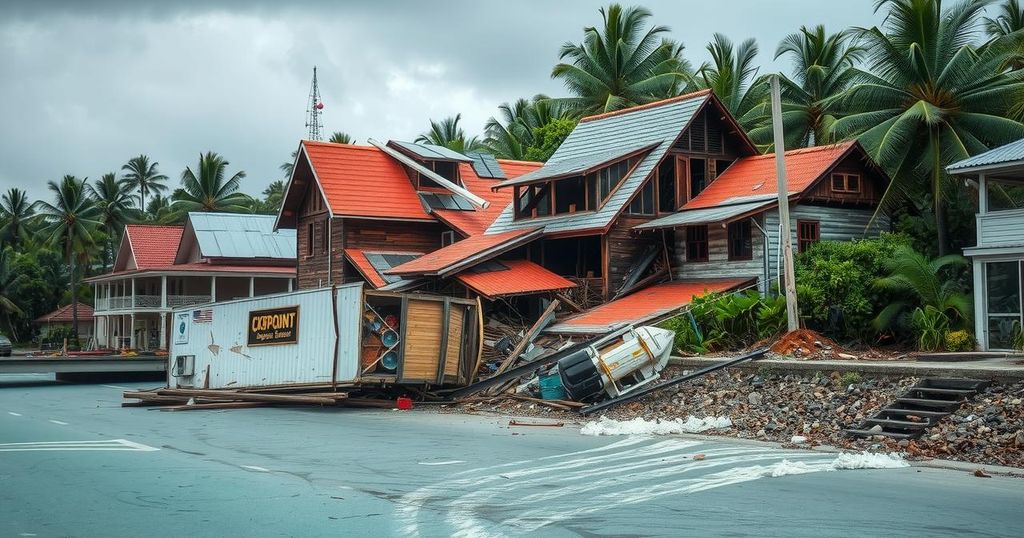Widespread Destruction in Mayotte Following Devastating Cyclone Chido

Mayotte is reeling from the catastrophic effects of Cyclone Chido, with reports of widespread destruction and a potential death toll in the hundreds or thousands. The storm has disrupted essential services and complicated rescue operations. Local reports compare the aftermath to the devastation of an atomic bomb, as entire neighborhoods have been flattened and residents face communication blackouts.
Mayotte has suffered extensive devastation following the passage of Cyclone Chido, a powerful category 4 storm that struck the archipelago over the weekend. Reports indicate that the cyclone resulted in catastrophic damage comparable to the impact of an atomic bomb, disrupting essential services and leaving entire neighborhoods in ruins. Early estimates suggest that the number of casualties could reach hundreds or possibly thousands, with local officials foreseeing significant challenges in aid delivery due to blocked access and communication disruptions across the islands.
Located in the Indian Ocean near Madagascar, Mayotte’s geographical and socio-economic conditions have compounded the impact of the cyclone. The tropical storm, characterized by winds exceeding 220 kilometers per hour, is noted as the most severe to have impacted the islands in more than 90 years, intensifying fears of widespread loss and destruction. The aftermath has prompted a humanitarian crisis, as rescue operations face considerable obstacles amid ongoing communication outages.
The French Interior Ministry confirmed at least 11 fatalities, yet local leaders believe the actual toll may be exponentially higher, citing the devastation of makeshift housing structures as a major factor. In the aftermath of the storm, local residents and officials have voiced their anguish and desperation, as the true extent of the destruction continues to emerge.
As efforts to restore communication and access are underway, the situation remains dire, with many families utilizing social media to locate loved ones in the wake of the disaster. The broader context of poverty, high unemployment rates, and significant migration challenges in Mayotte illustrate the vulnerabilities of the region as it grapples with the consequences of climate change and extreme weather events.
Cyclone Chido has significantly impacted Mayotte, a French territory located in the Indian Ocean and known for its socio-economic challenges. This cyclone is part of a larger pattern of increasingly severe tropical storms attributed to climate change, which complicates the environmental dynamics of the region. Mayotte faces additional vulnerabilities due to its status as the poorest region in the European Union, marked by high rates of undocumented migration and socioeconomic instability. As the cyclone season in the southwest Indian Ocean extends from November to April, communities are particularly susceptible to climate-related disasters, prompting urgent calls for infrastructural and humanitarian support.
In summary, Cyclone Chido has inflicted widespread devastation on Mayotte, with reports of catastrophic damage and a rising death toll. The challenges of delivering effective aid in the wake of the storm underscore the need for immediate support for the affected population. This disaster highlights the vulnerabilities faced by Mayotte, exacerbated by ongoing socio-economic issues and the impacts of climate change, necessitating enhanced preparedness for future weather-related events.
Original Source: www.cnn.com







